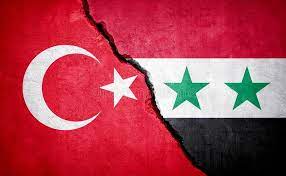As Turkey ramps up its threats against the Kurds in Syria, former French foreign minister Bernard Kouchner and writer Patrice Franceschi ask the West to take a firm stance against Ankara launching a new military operation.
Once again, we are back in Rojava, the homeland of the Kurds of Syria. This time, we are celebrating the 10th anniversary of the region’s autonomy, a 2012 conquest from the grips of the Assad regime, during the Arab Spring. The anniversary is very tense. If the Kurdish land is white-hot from the blazing sun, it is even more so from Turkey’s repeated announcements of a new and imminent invasion. This would be the fourth in six years, and so far, Turkish President Recep Tayyip Erdogan’s threats have always been followed through. All indications are that the Ankara leader remains determined to finish off the Kurds, as they fiercely oppose his expansionist plans as well as his desire to resettle Islamists in their territory.
In every town on the vast plain that runs from the Tigris to the Euphrates, the mythical rivers of ancient Mesopotamia, the Kurds and their Arab and Christian allies in the Syrian Democratic Forces (SDF) are celebrating this anniversary against a backdrop of confusion. While they all proudly remember their victory against the Islamic State group (ISIS) – when we, the French, fully supported them as part of the international coalition – they have not forgotten the 36,000 deaths and injuries that it cost them to defeat our common enemy. As they honor their dead with emotion, they wonder what human price they will still have to pay if, as in the fall of 2019, we leave them at the mercy of Turkey, our NATO ally who knows how to leverage its role in the Ukrainian conflict to better impose its immediate views, much to the detriment of our long-term interests.
Everywhere in Rojava, people are preparing, with a mix of sadness and determination, for a new murderous war, whose beginnings can be seen in countless acts of violence that the Turks are carrying out from their side of the border: bombing villages, schools, cemeteries, churches, and assassinating military leaders by the drones that are constantly flying overhead. Seven of these leaders, most of them women, were killed during our 10-day stay in late July alone.
Le Monde
